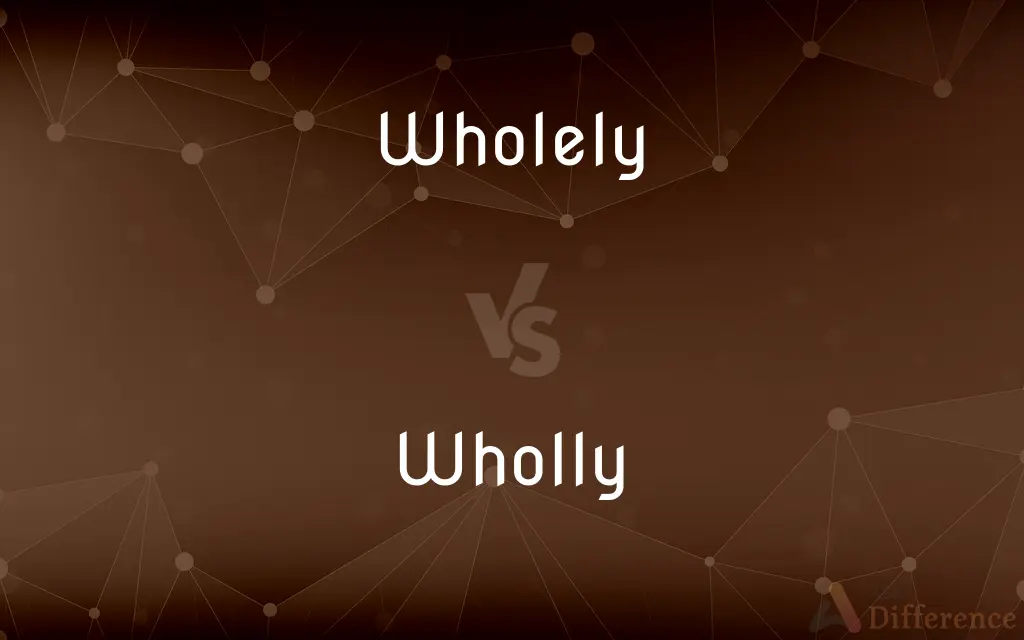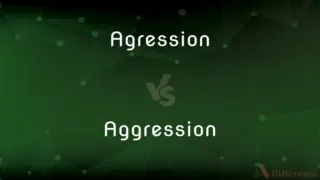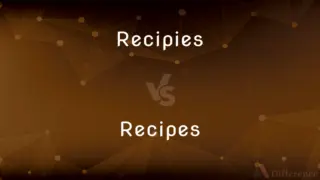Wholely vs. Wholly — Which is Correct Spelling?
Edited by Tayyaba Rehman — By Fiza Rafique — Updated on March 26, 2024
"Wholely" is an incorrect spelling of "wholly." "Wholly" means completely or entirely.

Table of Contents
Which is correct: Wholely or Wholly
How to spell Wholly?

Wholely
Incorrect Spelling

Wholly
Correct Spelling
ADVERTISEMENT
Key Differences
Think of "whole" losing an 'e' to become "wholly."
"Whole" and "all" both have four letters; "wholly" relates to all or everything.
"Whole" foods are "wholly" natural; keep the spelling streamlined.
There's only one 'e' in "entirely," just as in "wholly."
Remember, "whole" turns "wholly," not "wholely."
ADVERTISEMENT
How Do You Spell Wholly Correctly?
Incorrect: His idea was wholely original and quite innovative.
Correct: His idea was wholly original and quite innovative.
Incorrect: She was wholely dedicated to her work, often staying late.
Correct: She was wholly dedicated to her work, often staying late.
Incorrect: The team was wholely unprepared for the challenge they faced.
Correct: The team was wholly unprepared for the challenge they faced.
Incorrect: The project was wholely funded by donations from the community.
Correct: The project was wholly funded by donations from the community.
Incorrect: He disagreed wholely with the proposed changes.
Correct: He disagreed wholly with the proposed changes.
Wholly Definitions
Entirely or to the full extent.
She was wholly devoted to her work.
Completely and fully.
The story is wholly true.
Without exception or qualification.
He is wholly responsible for the mishap.
In all respects; absolutely.
Their accounts were wholly different.
In totality or entirety.
The event was wholly satisfying.
Completely; entirely
"The old American purposes are still wholly relevant" (John F. Kennedy).
Exclusively; solely.
Completely and entirely; to the fullest extent.
Exclusively and solely.
A creature wholly given to brawls and wine.
In a whole or complete manner; entirely; completely; perfectly.
Nor wholly overcome, nor wholly yield.
To the exclusion of other things; totally; fully.
They employed themselves wholly in domestic life.
To a complete degree or to the full or entire extent (`whole' is often used informally for `wholly');
He was wholly convinced
Entirely satisfied with the meal
It was completely different from what we expected
Was completely at fault
A totally new situation
The directions were all wrong
It was not altogether her fault
An altogether new approach
A whole new idea
Wholly Meaning in a Sentence
She found herself wholly absorbed in the music, forgetting everything else.
Her attention was wholly focused on finishing the painting before the deadline.
He was wholly committed to improving his skills, practicing every day.
The success of the event was wholly dependent on volunteer support.
The theory was wholly disproven by the new research findings.
Their efforts were wholly appreciated by the community.
The area was wholly deserted, with not a soul in sight.
She was wholly unaware of the surprise party being planned for her.
He found the movie wholly uninteresting and left halfway through.
The garden was wholly organic, with no chemical pesticides used.
The movement was wholly supported by the local population.
The approach was wholly innovative, setting a new standard in the field.
The novel's theme was wholly different from what she usually wrote.
The agreement was wholly beneficial to both parties involved.
His apology seemed wholly sincere, easing their concerns.
The program was wholly ineffective, leading to its cancellation.
The decision was wholly unexpected, taking everyone by surprise.
The country's economy was wholly reliant on the export of oil.
The story was wholly based on historical events, adding to its authenticity.
Their reaction was wholly justified given the circumstances.
The strategy was wholly designed to increase market share.
She was wholly satisfied with the outcome of the project.
The meal was wholly vegetarian, catering to all guests' dietary restrictions.
The company was wholly owned by a single family for generations.
Wholly Idioms & Phrases
Wholly committed
Fully dedicated or devoted to a cause or activity.
She was wholly committed to her training, aiming for the Olympics.
Wholly owned subsidiary
A company whose entire stock is held by another company.
The tech startup became a wholly owned subsidiary of the large corporation.
Wholly independent
Completely independent, without reliance on others.
After years of support, the organization became wholly independent.
Wholly agree
To completely agree with an opinion or proposal.
I wholly agree with your assessment of the situation.
Wholly different
Entirely or completely different.
His approach was wholly different from anything we'd seen before.
Wholly unacceptable
Completely unacceptable; not to be tolerated.
The conditions in the factory were wholly unacceptable.
Wholly absorbed
Fully engrossed or preoccupied with something.
He was wholly absorbed in his research, forgetting about the time.
Wholly responsible
Completely responsible for something, without sharing blame or credit with others.
The director was wholly responsible for the film's success.
Wholly unnecessary
Completely unnecessary; not needed at all.
The meeting was wholly unnecessary, as everything had already been decided via email.
Wholly satisfying
Completely fulfilling or gratifying.
Finishing the marathon was a wholly satisfying experience.
Common Curiosities
Why is it called wholly?
It's derived from "whole" with the adverbial suffix "-ly" to express completeness or entirety.
What is the verb form of wholly?
"Wholly" doesn't have a verb form. The related verb is "be" as in "be whole."
What is the root word of wholly?
The root word is "whole."
What is the pronunciation of wholly?
/ˈhoʊli/
Which vowel is used before wholly?
The vowel "o."
What is the singular form of wholly?
"Wholly" is an adverb and doesn't have a singular form.
Which preposition is used with wholly?
No specific preposition is tied to "wholly." It depends on the context.
Which article is used with wholly?
"Wholly" doesn't typically take an article since it's an adverb.
Is wholly an adverb?
Yes.
What is the plural form of wholly?
"Wholly" doesn't have a plural form.
Which conjunction is used with wholly?
Standard conjunctions can be used with "wholly" depending on the sentence.
How do we divide wholly into syllables?
Whol-ly.
How many syllables are in wholly?
Two.
Which determiner is used with wholly?
"Wholly" doesn't typically require a determiner.
Is wholly a noun or adjective?
Neither. It's an adverb.
Is wholly an abstract noun?
No.
Is wholly a countable noun?
No.
Is wholly a collective noun?
No.
Is the word wholly imperative?
No.
Is the wholly term a metaphor?
No.
What is the first form of wholly?
N/A, as "wholly" is an adverb.
What is the second form of wholly?
N/A.
Is wholly a negative or positive word?
Neutral. It describes the extent or completeness of something.
Is wholly a vowel or consonant?
It's a word containing both vowels and consonants.
What is a stressed syllable in wholly?
"Whol."
What part of speech is wholly?
Adverb.
What is another term for wholly?
Entirely.
What is the opposite of wholly?
Partially.
What is the third form of wholly?
N/A.
How is wholly used in a sentence?
"The project was wholly funded by the community."
Share Your Discovery

Previous Comparison
Agression vs. Aggression
Next Comparison
Recipies vs. RecipesAuthor Spotlight
Written by
Fiza RafiqueFiza Rafique is a skilled content writer at AskDifference.com, where she meticulously refines and enhances written pieces. Drawing from her vast editorial expertise, Fiza ensures clarity, accuracy, and precision in every article. Passionate about language, she continually seeks to elevate the quality of content for readers worldwide.
Edited by
Tayyaba RehmanTayyaba Rehman is a distinguished writer, currently serving as a primary contributor to askdifference.com. As a researcher in semantics and etymology, Tayyaba's passion for the complexity of languages and their distinctions has found a perfect home on the platform. Tayyaba delves into the intricacies of language, distinguishing between commonly confused words and phrases, thereby providing clarity for readers worldwide.


































